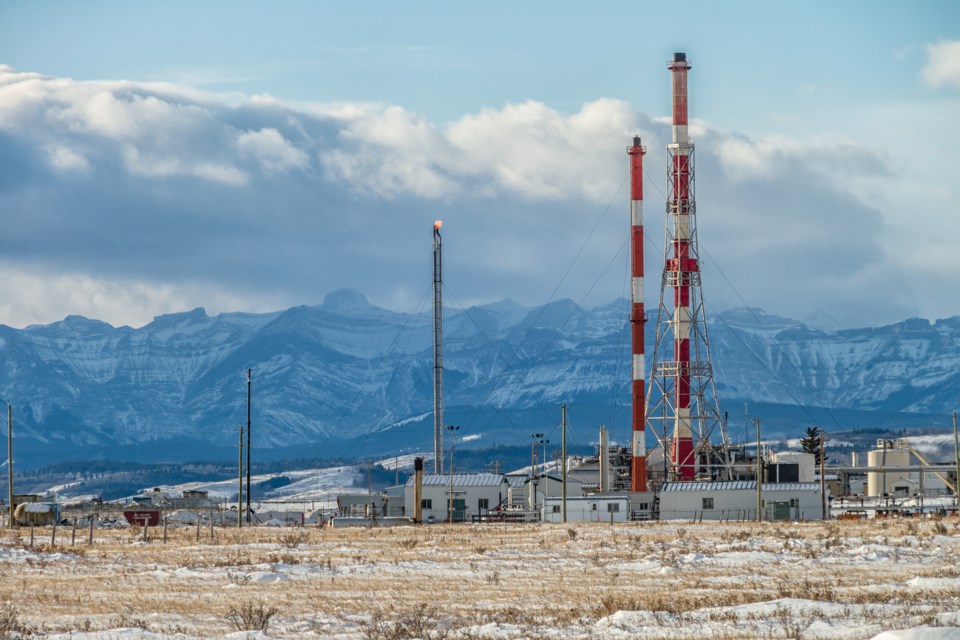While fourth quarter economic forecasts are indicating Alberta may have hit the lowest point and is on the upswing for 2017, questions remain on how a provincial (or federal) carbon tax will play out and what direct impact on job growth will result out of two major pipeline project go-aheads.
“By all accounts, a carbon tax won’t make a difference on the environment and will punish the average family,” said Banff-Airdrie Conservative MP Blake Richards, adding that he anticipates the cost to translate to an average increase of $2,500/year for the average family.
“We are the only major oil and gas producer in the world to impose such a carbon tax,” said PC Party frontrunner Jason Kenney at a Dec. 19 during a unite the right forum held at Seniors on the Bow Centre in Cochrane.
Kenney said that he would scrap the carbon tax if he was at the leadership helm and join Saskatchewan Premier Brad Wall in repealing a federal carbon tax, adding that a carbon tax is an example of “the triumph of ideology over common sense” that will have no actual benefit to the environment.
Cameron Westhead, Banff-Cochrane NDP MLA, couldn’t disagree more.
“We are seeing the benefits of Alberta’s Climate Leadership Plan already,” said Westhead, adding that Prime Minister Justin Trudeau gave the green light to Kinder Morgan’s Trans Mountain and the Line 3 pipeline projects because of Alberta’s “action on climate change.”
Westhead said the Trans Mountain pipeline will see a phased-in construction expansion between 2017-2019.
“During construction of the project, the anticipated workforce will reach the equivalent of 15,000 jobs per year, followed by the equivalent of a further 37,000 direct, indirect and induced jobs per year of operations,” said Westhead.
According to the prime minister’s website: “Alberta’s climate plan is a vital contributor to our national strategy. It has been rightly celebrated as a major step forward by industry and the environmental community.”
The Liberals have been criticized by the Conservatives for rejecting the Northern Gateway pipeline and for taking credit for the two approved pipelines that they say would have been approved regardless.
“It's been great to see some pipeline approvals, but they won't do us much good if we are taxed so heavily that our companies cannot compete in the international markets,” said Cochrane Coun. Morgan Nagel, who recently took a position on Kenney’s campaign team.
“Alberta is in the middle of a recession and the NDP and Liberal carbon taxes aim to punish our biggest industries,” he added.
Spray Lake Sawmills, one of Cochrane’s largest employers, said it is too preliminary to assess how much of an impact a carbon levy would make – but that it would result in increased costs.
“The price of lumber is influenced by the North American market, so anytime there is a potential increase in costs that are not shared by the entire market, it is a concern,” said Ed Kulcsar, woodlands manager for the sawmill.
According to Paige Milner, senior manager of corporate services for the town, the average municipal tax bill is anticipated to increase by 27 cents per month.
“The town wide fuel budget is $200,000 so an estimated five per cent increase from carbon tax is $10,000,” explained Milner. “Our bigger cost is the town’s electricity budget at $1.7 million which includes an estimated $30,000 carbon tax impact.”
Milner said the estimations are based on estimates from the energy provider.
According to the Alberta government’s website, prices are anticipated to increase for fuel and energy by 4.49 cents/L for gas; 5.53 cents/L for diesel; 1.011 cents/GJ for natural gas; and 3.08 cents/L for propane as of Jan. 1.
These prices will increase again on Jan. 1, 2018 as the carbon levy taxes increases to $30/tonne from $20/tonne.
Critics of both the provincial and federal carbon taxes, including the Wildrose have been adamant that the tax will be also be felt through increased shipping, heating costs and a general increase in the price of all consumer goods.
The NDP counters that 60 per cent of Alberta households will see a carbon levy rebate.




